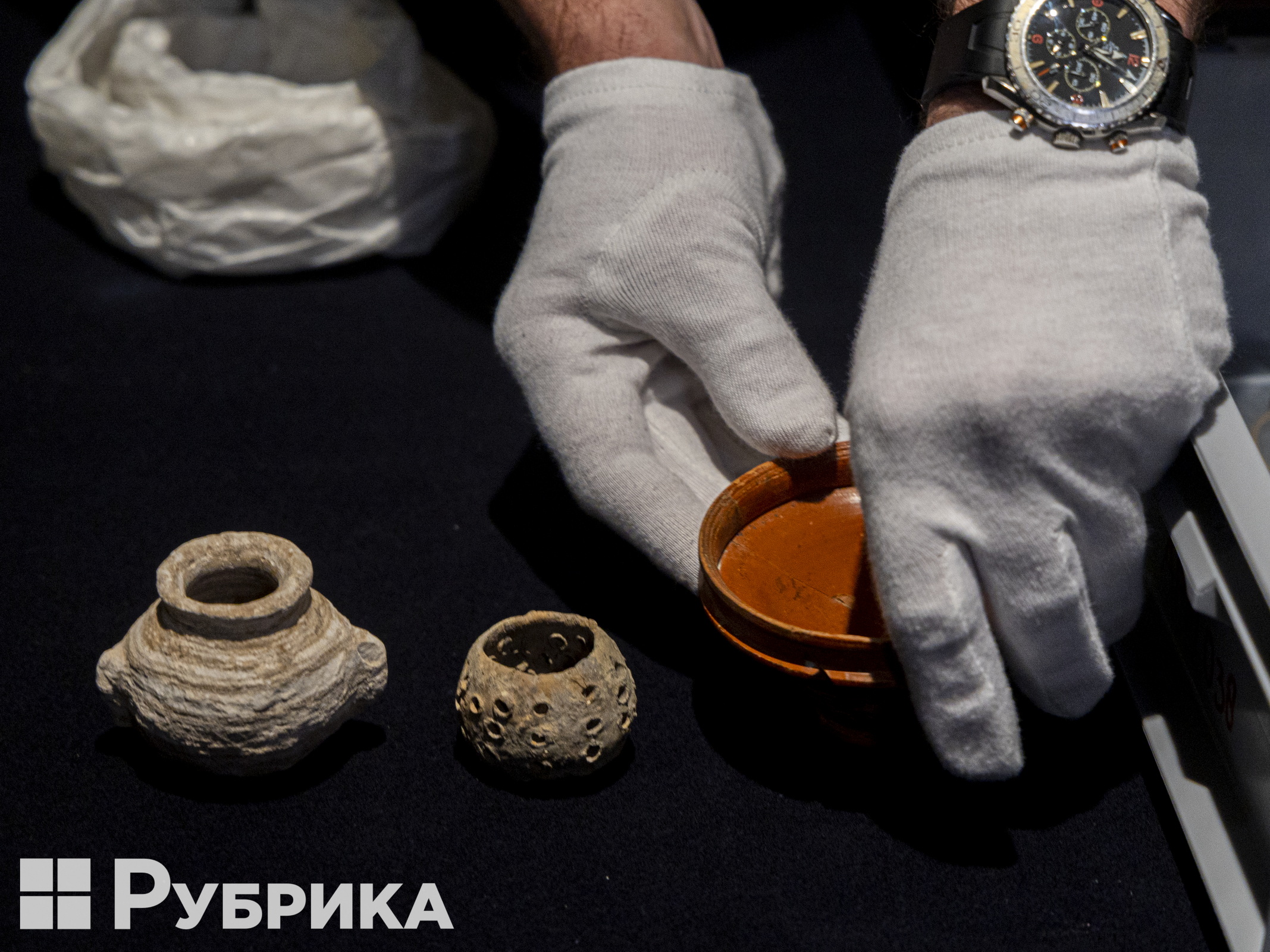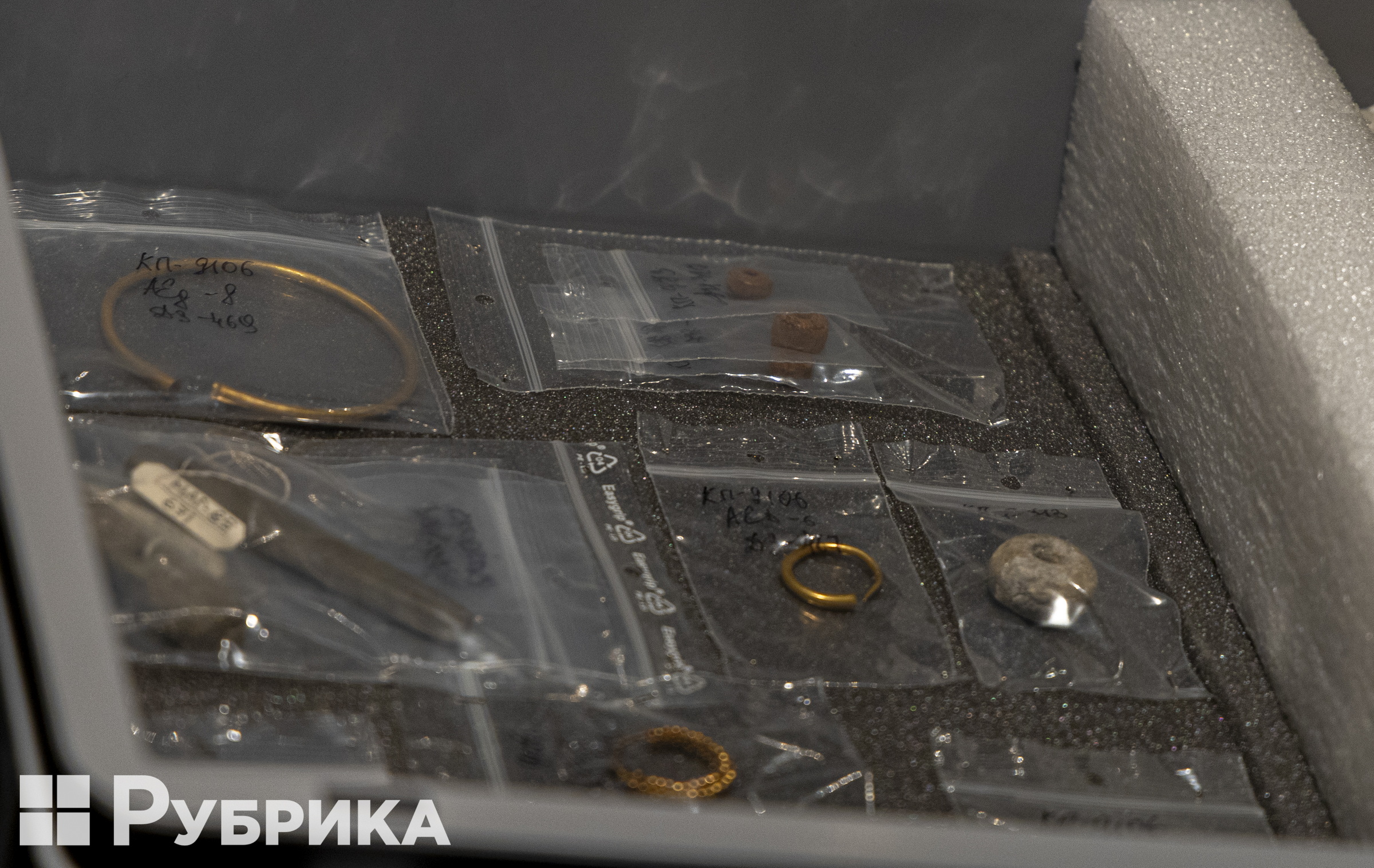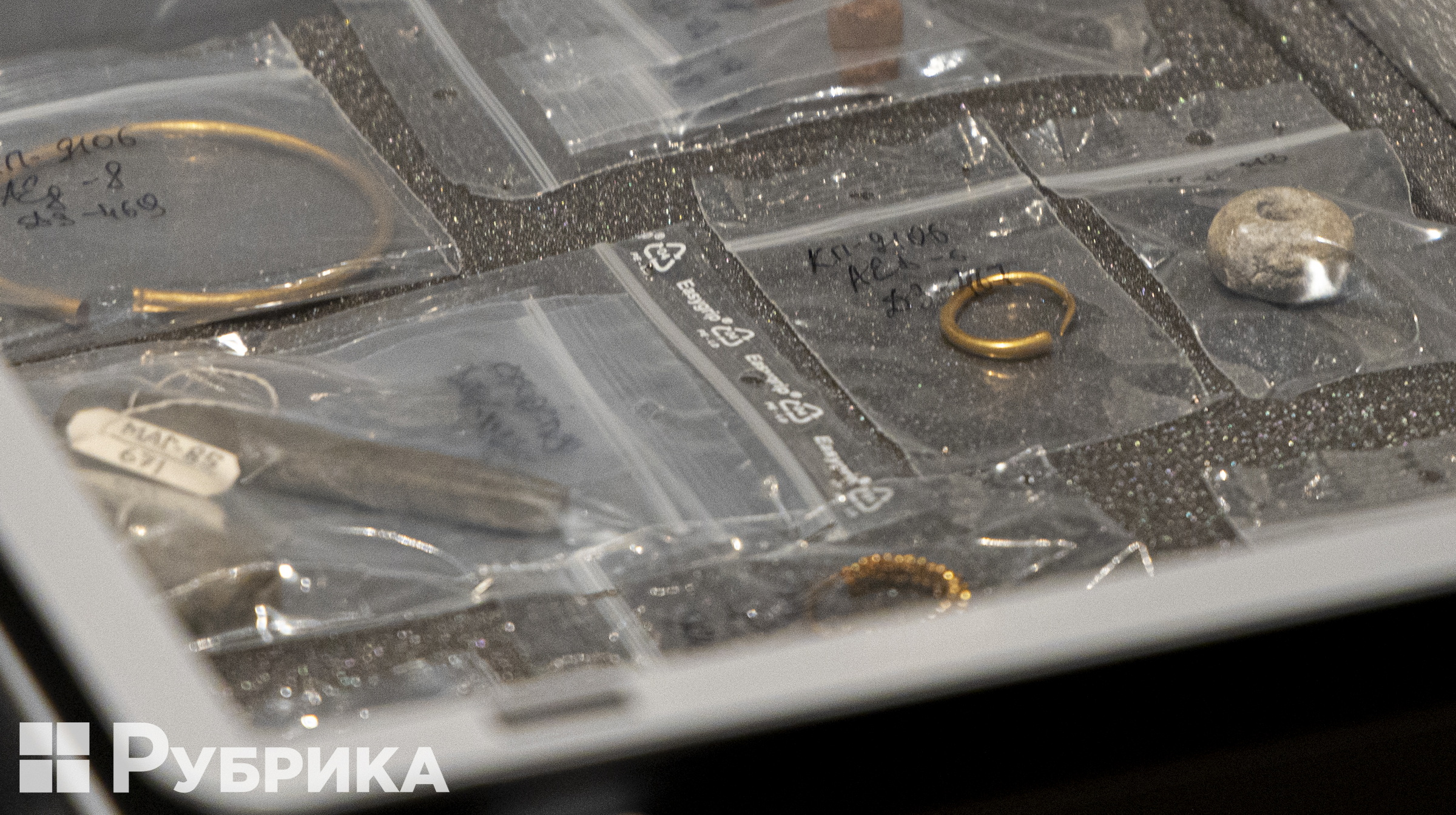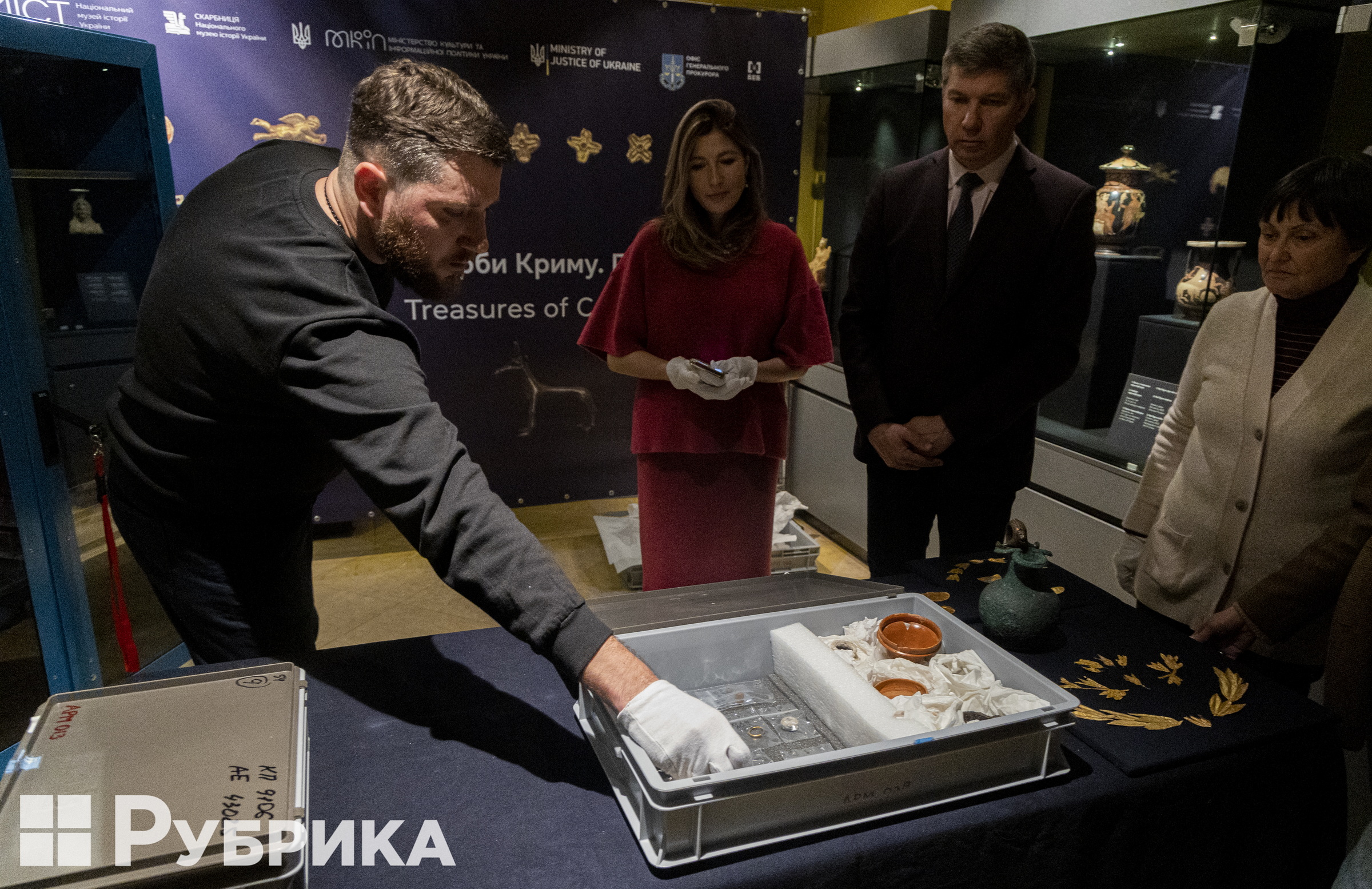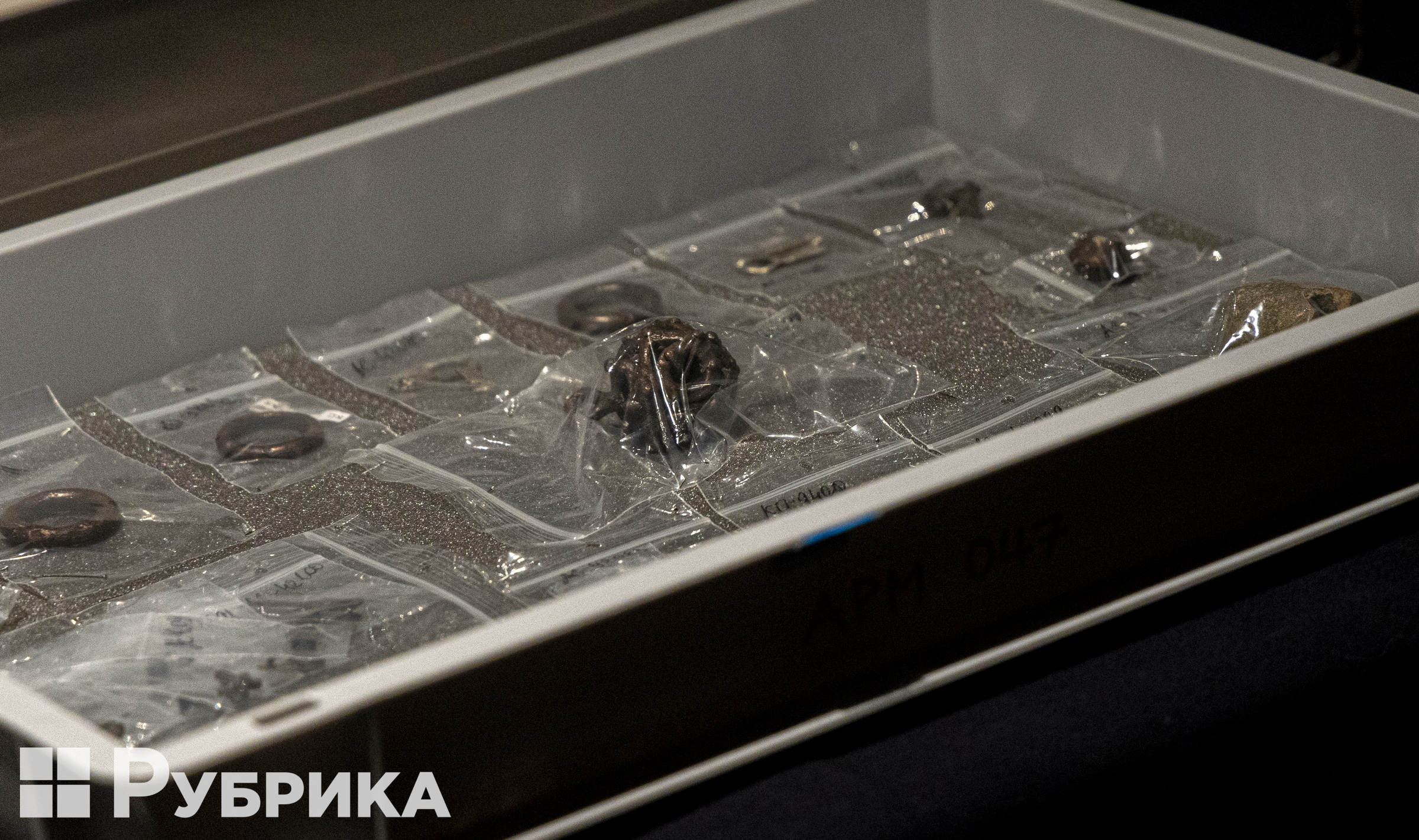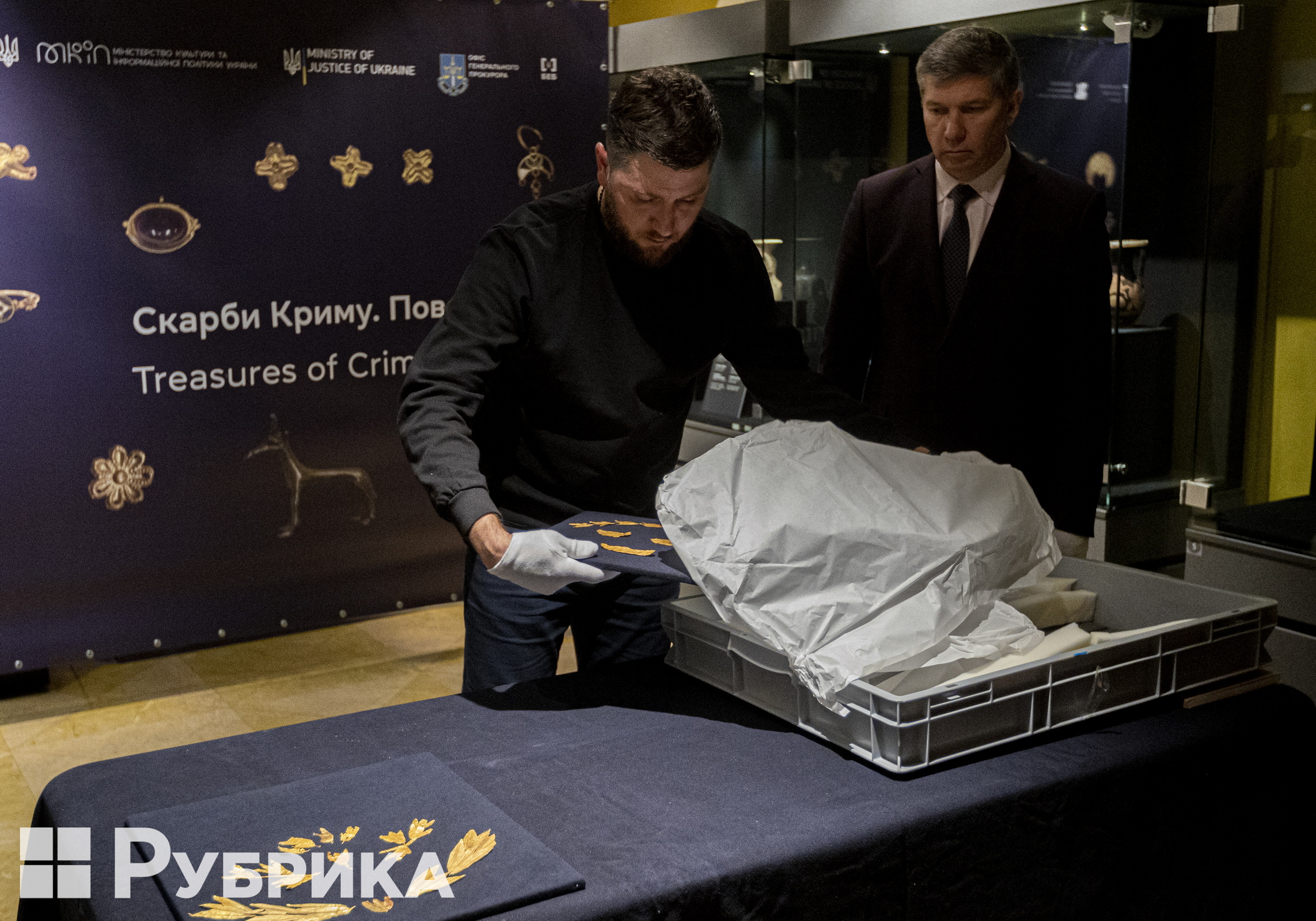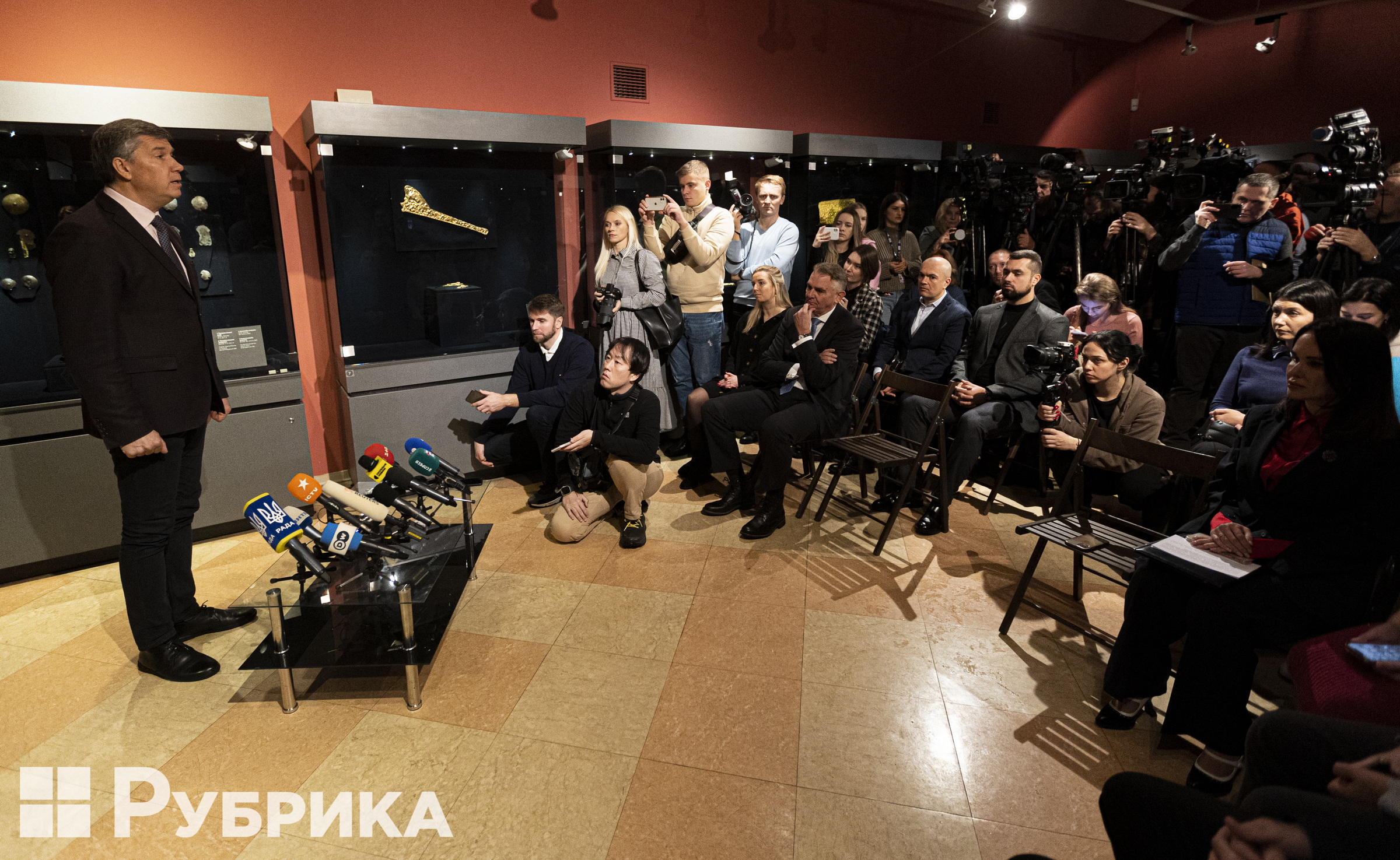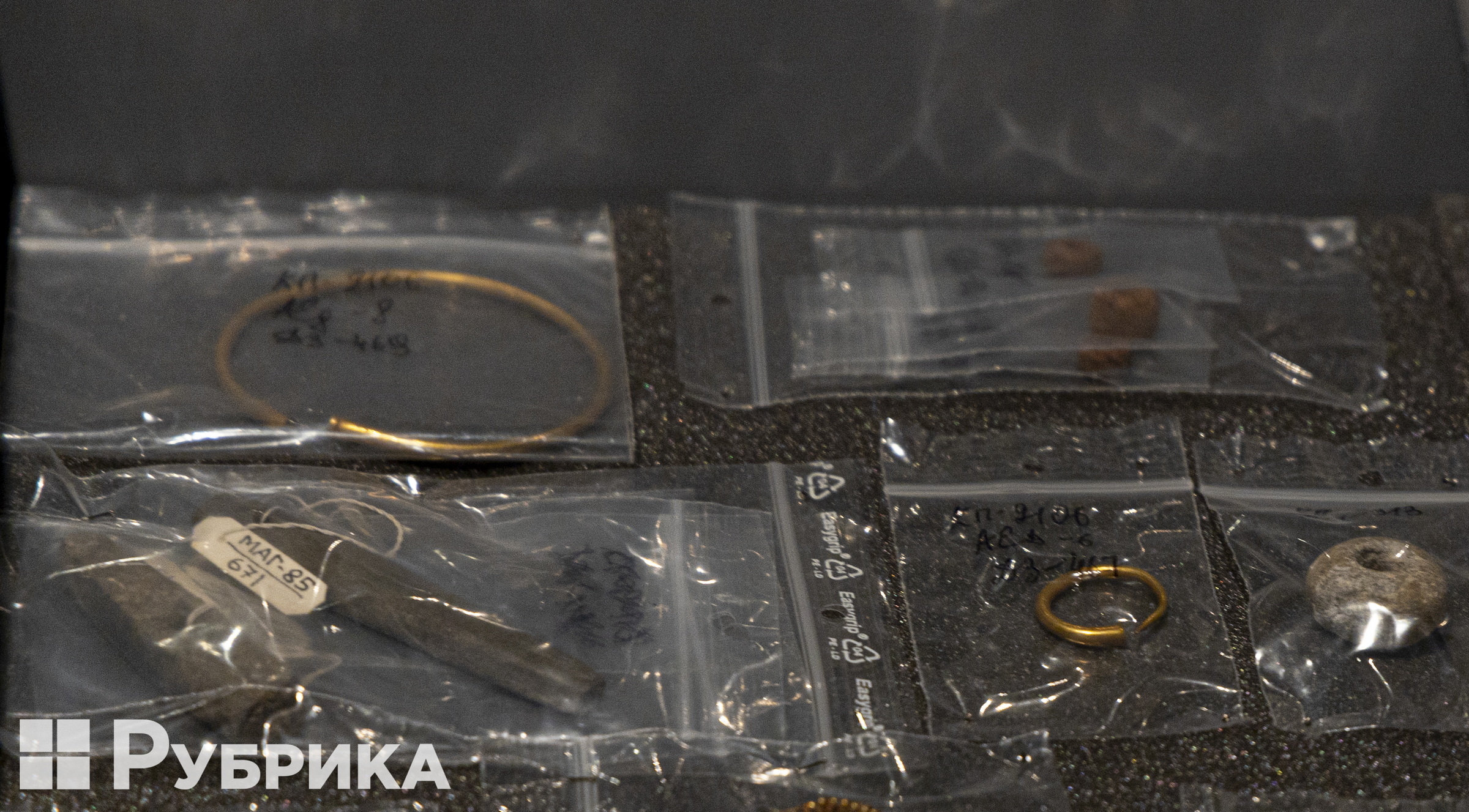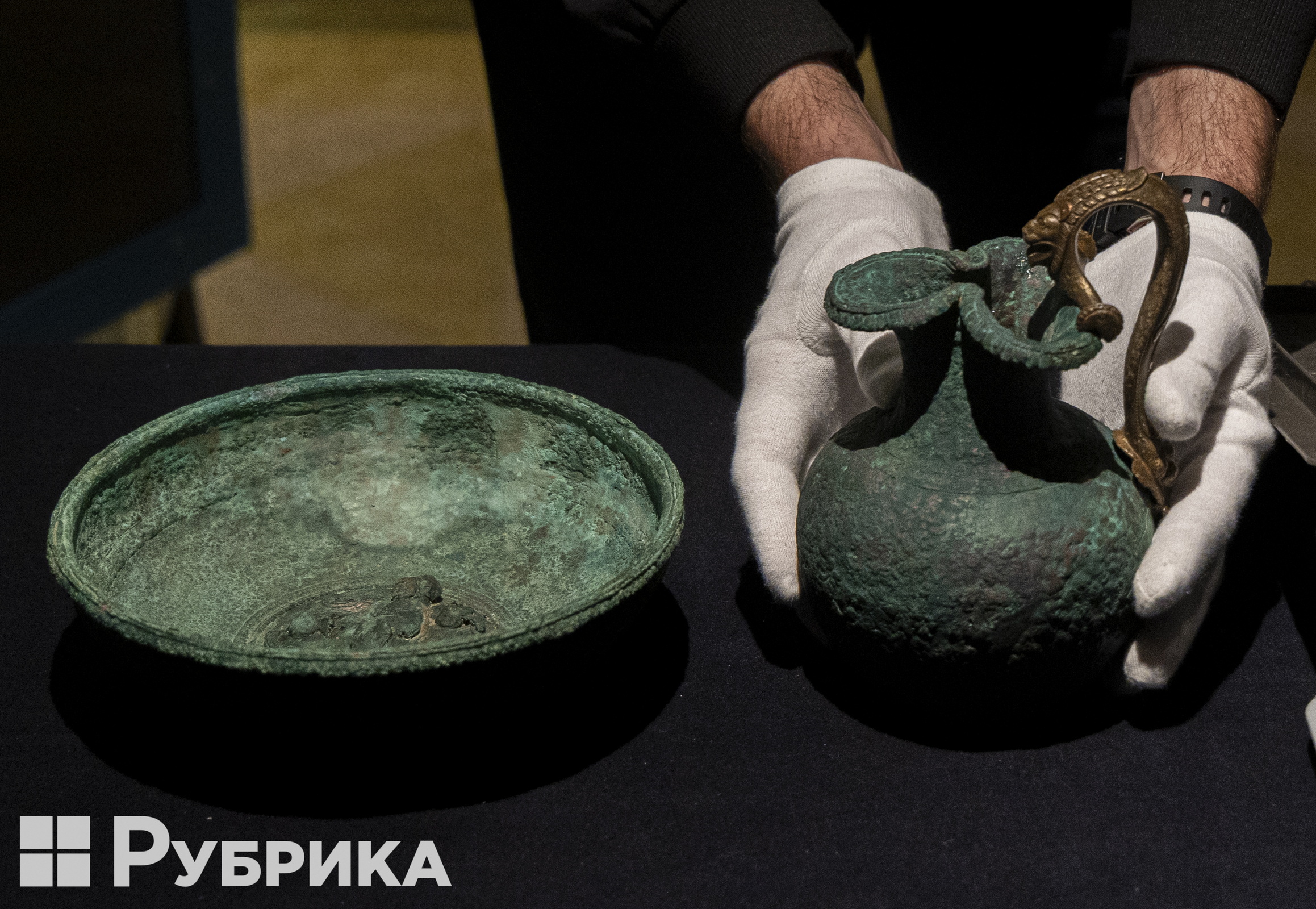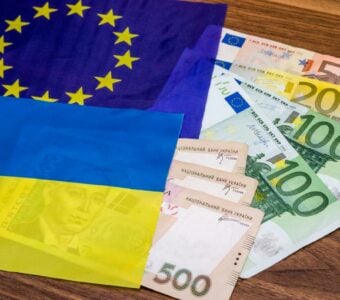Scythian gold return marks start of Ukraine's efforts to recover valuables stolen by Russia – cultural ministry
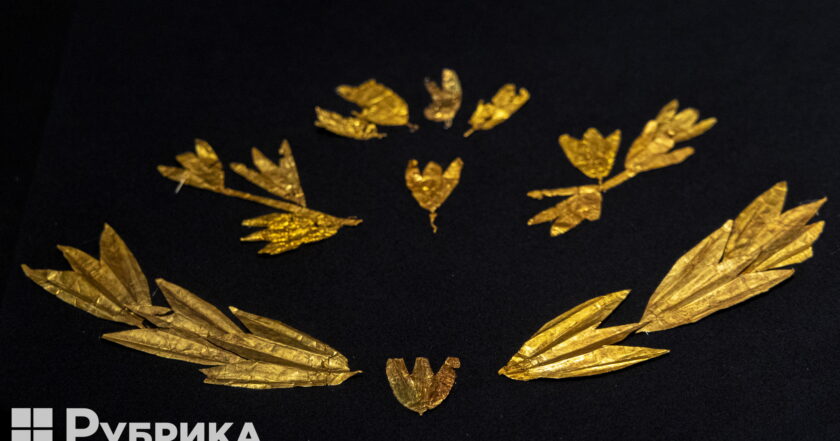
On Tuesday, the Museum of Historical Treasures of Ukraine presented specific artifacts from the collection "Crimea: Gold and Secrets of the Black Sea," which recently returned to Ukraine from the Netherlands.
Artifacts from four museums in Crimea, presented at the exhibition in Amsterdam, returned to Ukraine after nearly ten years of legal proceedings and disputes with museums on the Russian-occupied peninsula, Rubryka reports.
According to the Ministry of Culture and Information Policy of Ukraine, the presentation was attended by Acting Minister of Culture Rostyslav Karandieiev, First Deputy Minister of Foreign Affairs of Ukraine Emine Dzheppar, Deputy Minister of Justice of Ukraine Iryna Mudra, and the Ambassador of the Kingdom of the Netherlands to Ukraine Jennes de Mol.
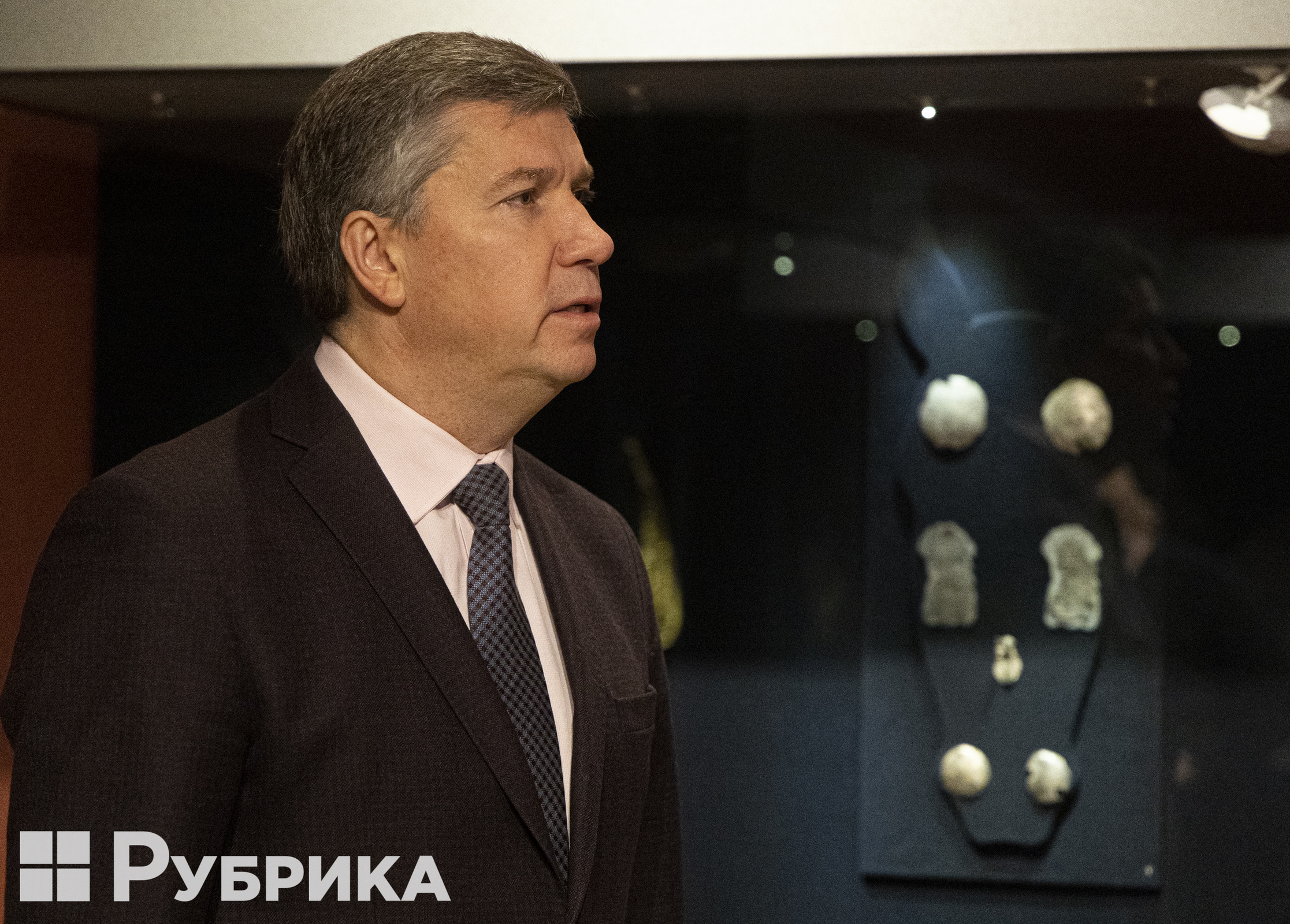
"The 'Scythian Gold' is the most valuable Ukrainian collection that Russia failed to appropriate. The collection has already been cleared through customs in Ukraine," said Acting Minister Rostyslav Karandieiev.
The head of the department explained that the country's diplomats, lawyers, cultural figures, law enforcement, and special services were involved in extensive work to return these objects of Ukrainian heritage.
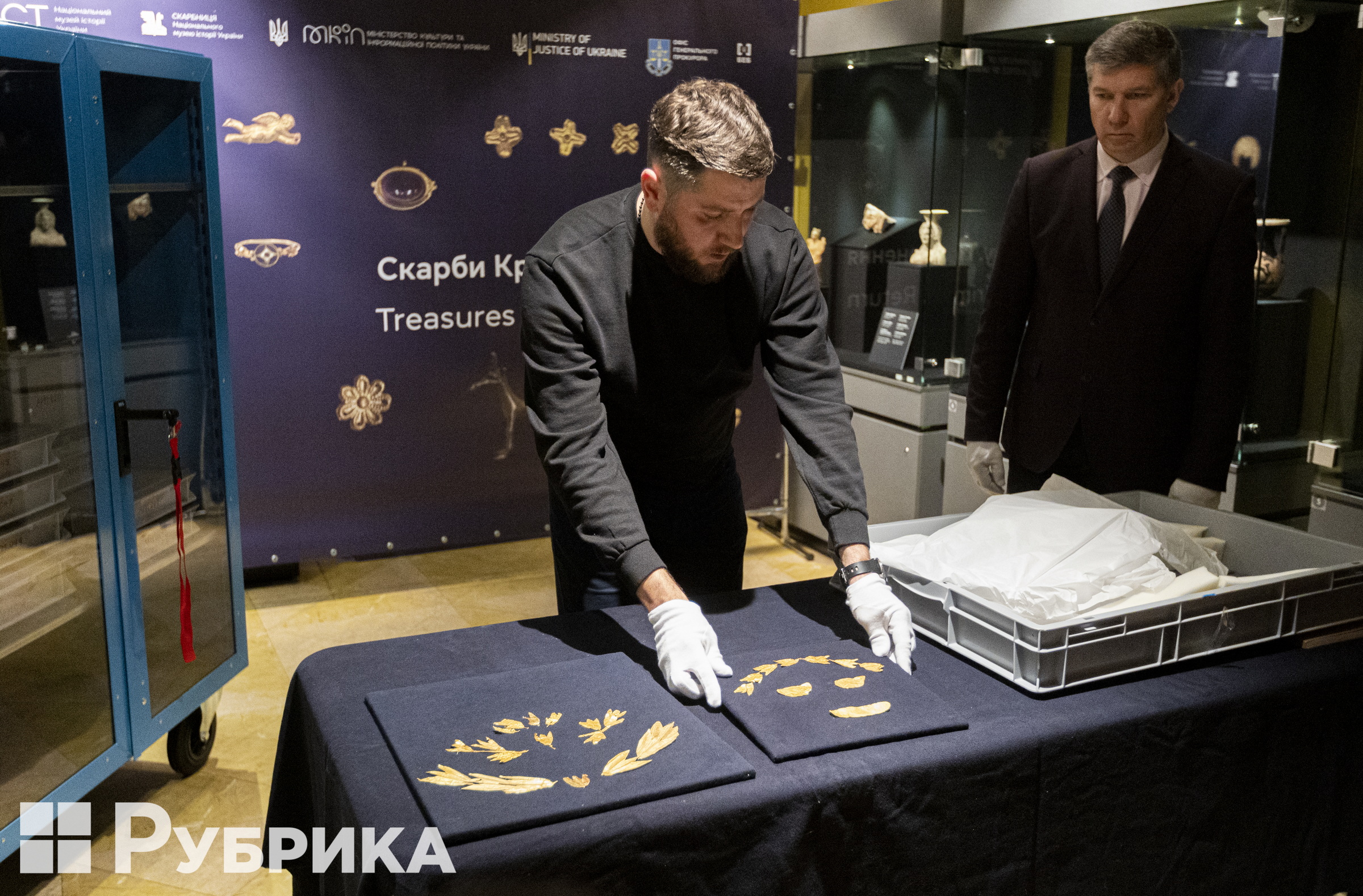
"565 items that have returned will be added to the collection. We believe these artifacts will return home after the liberation of Crimea. We are grateful to the world community, which stands in solidarity with Ukraine. Thanks to everyone involved in this mission — the return of Ukrainian culture," said Karandieiev. "Thanks to the Ministry of Foreign Affairs, the Ministry of Justice, the Embassy of the Kingdom of the Netherlands in Ukraine, the Security Service of Ukraine, and everyone who was in a united team working for results. The return of the collection, rightfully belonging to Ukraine, should be the beginning of the return of artifacts stolen by Russia and part of the country's future reparations."
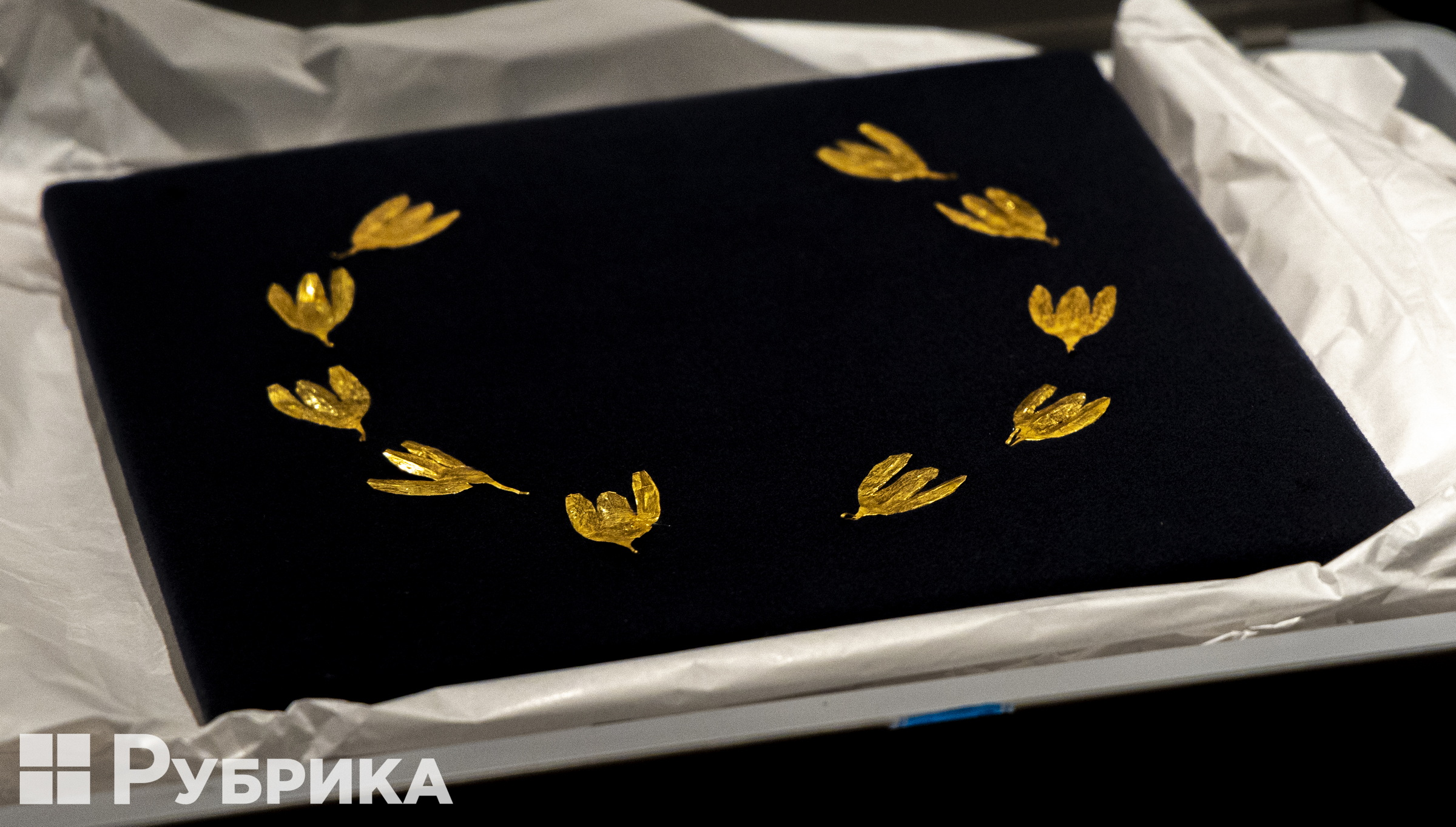
The collection consists of treasures from four Crimean museums: Central Museum of Tauris, Kerch Historical and Cultural Reserve, National Reserve of Tauric Chersonesos, and Bakhchisarai Historical and Cultural Reserve.
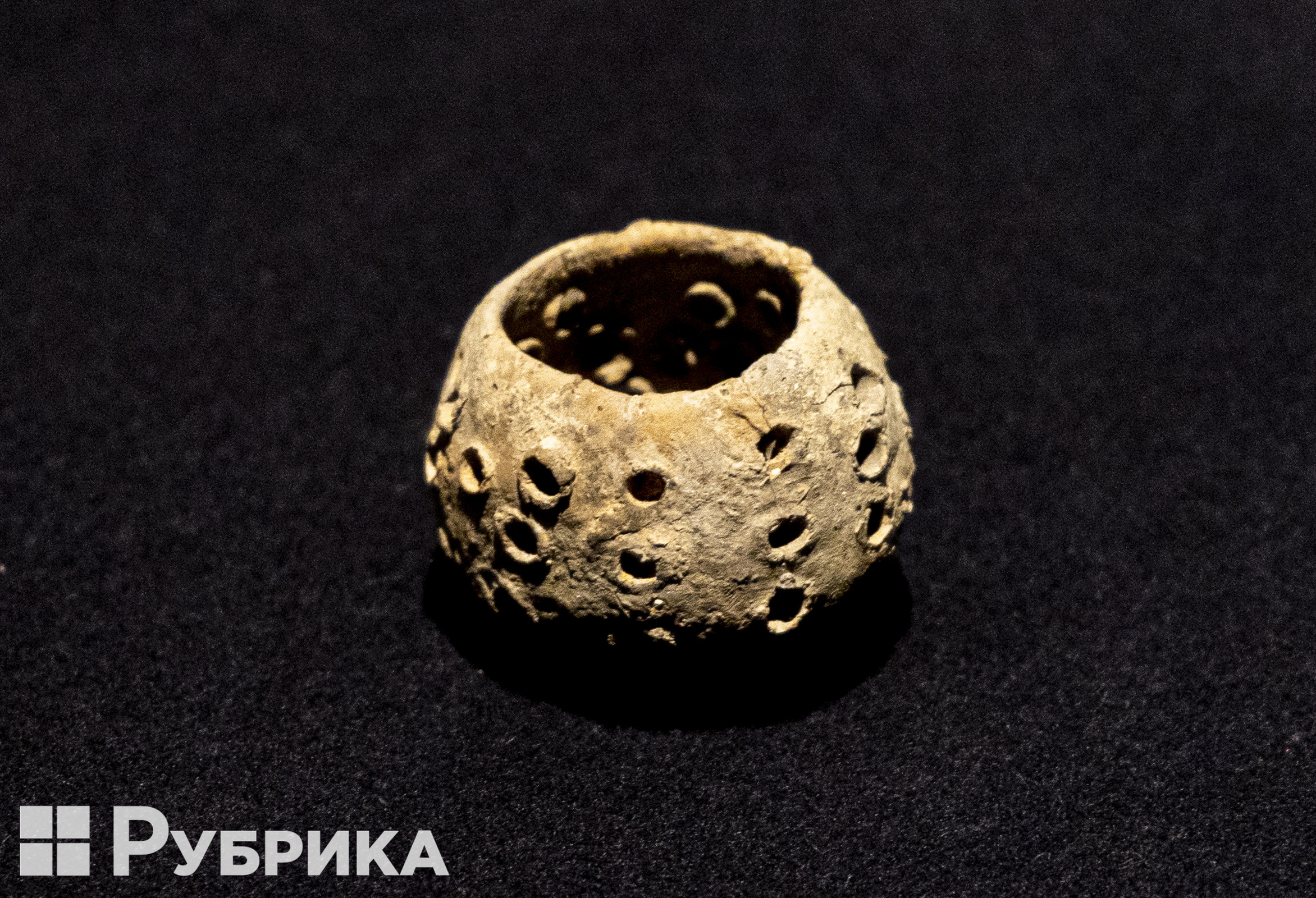
"Congratulations to all of us on this victory. For me, this is an extraordinary honor because I participated in all court sessions. The Ukrainian delegation was powerfully represented by museum professionals. We were accused of politicizing the process. In the end, the court's decision was in favor of Ukraine. This case teaches us that if aggression is not stopped, it will expand. Justice must be restored, and Russia must be punished," said Emine Dzheppar.
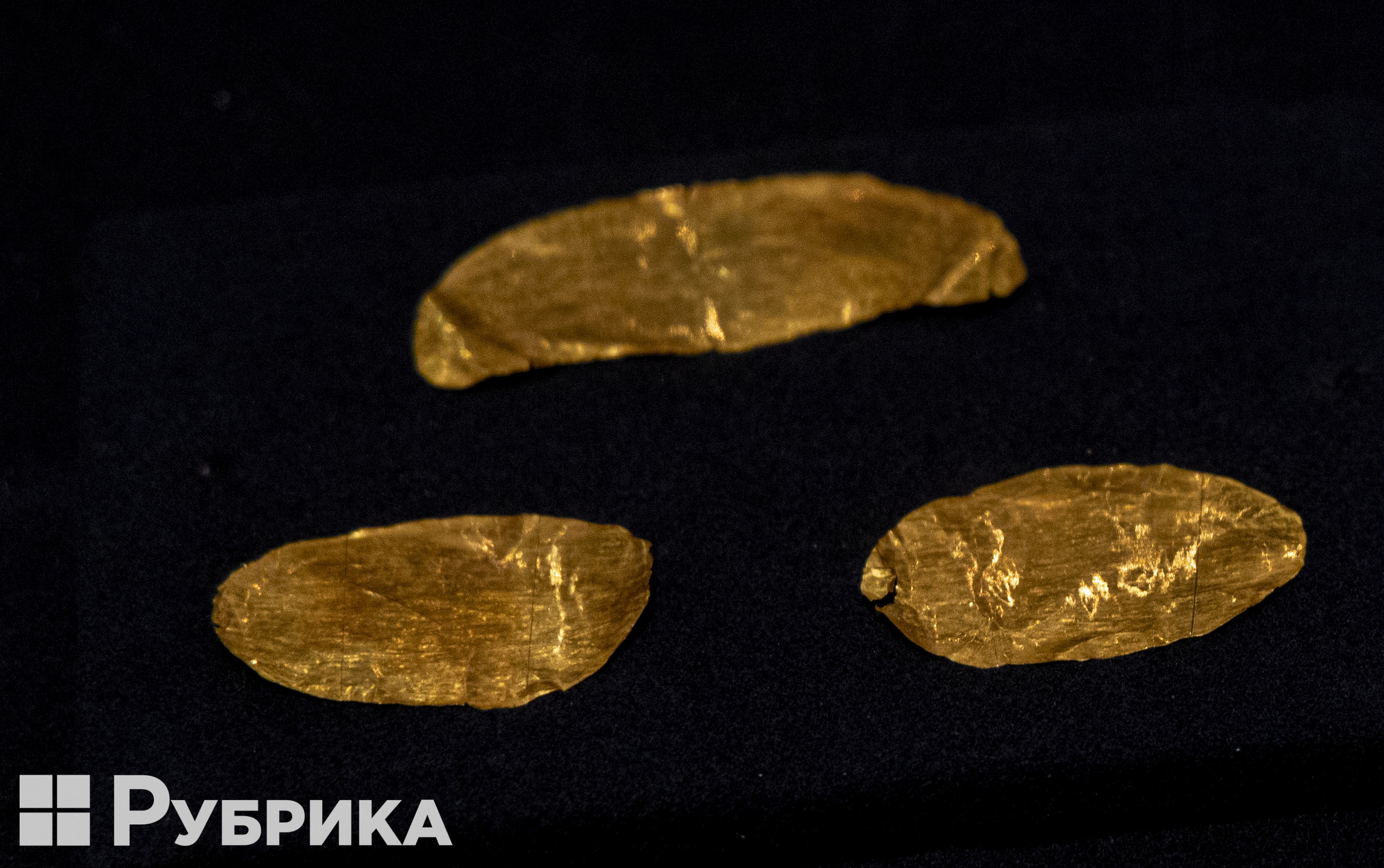
As Rubryka reported, until the Crimea de-occupation, the "Scythian Gold" will be temporarily stored in the Treasury of the Museum on the territory of the Kyiv-Pechersk Lavra.
"National cultural heritage has returned to its owner. Since 2014, Ukraine has held the front of defense and conducted an offensive on the legal front. This case, this decision, is significant in terms of proving legal facts," said Deputy Minister of Justice Iryna Mudra. "Despite the absurdity of Russia's arguments, the court established the facts. Russia wanted to show that Ukraine's sovereignty does not extend to the territory of Ukraine, to Crimea. As a result, we have a decision that testifies that Crimea is Ukraine. Thanks to the joint work of all authorities, we have achieved a decision in our favor. Sincere gratitude to the Netherlands for consistent support of Ukraine."
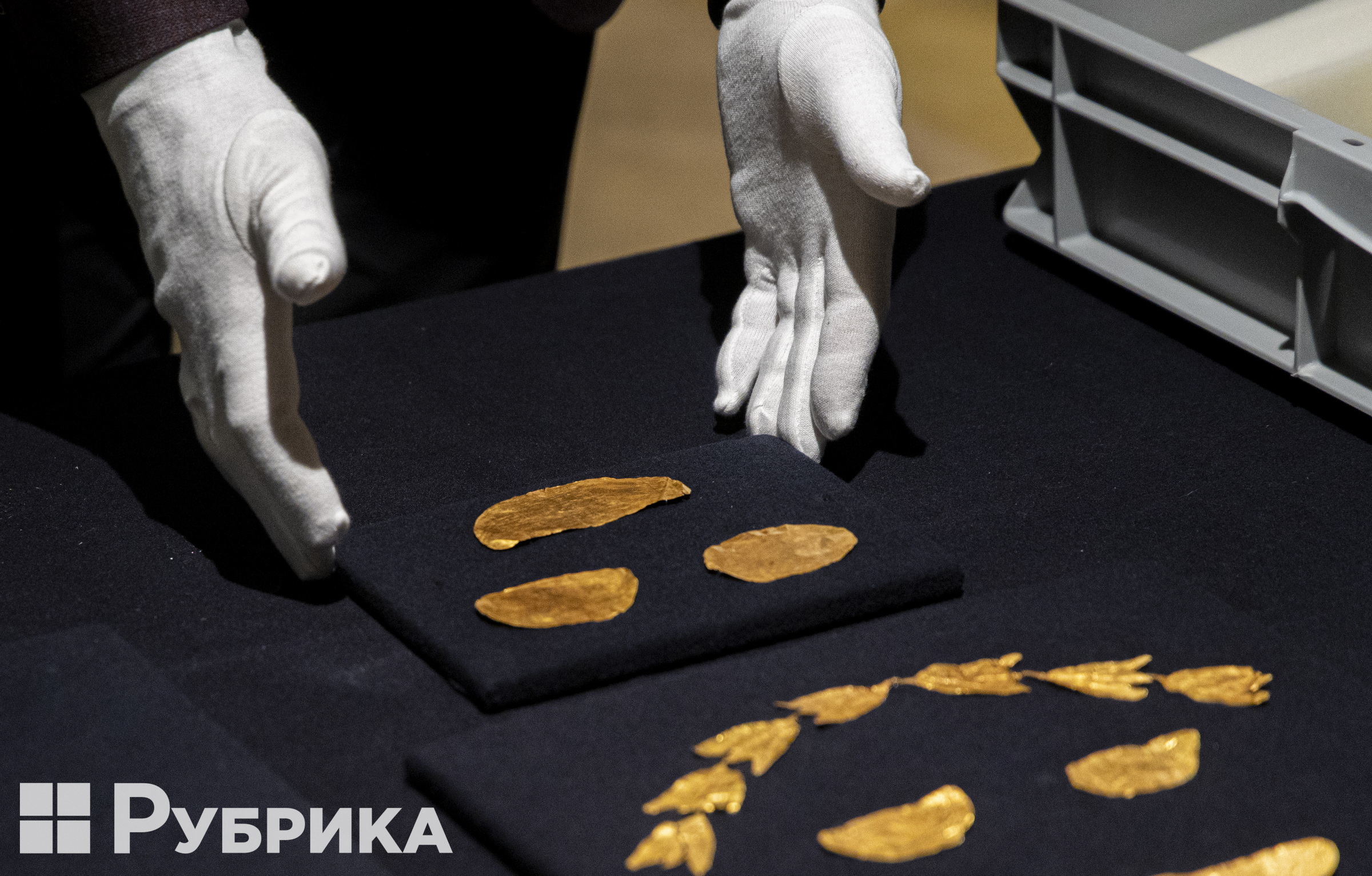
In turn, Ambassador of the Kingdom of the Netherlands to Ukraine Jennes de Mol emphasized that the collection's return is a sign of the independence of the Dutch judicial system, which has undergone long trials.
"Ukraine has a legitimate interest in protecting its cultural heritage, so the Amsterdam District Court applied the legal norms of the Hague Convention and the UNESCO Convention. And here we are. Crimean treasures have been returned to Ukraine without hindrance. I hope that in the foreseeable future, artifacts will return to Ukrainian Crimea," he stressed.
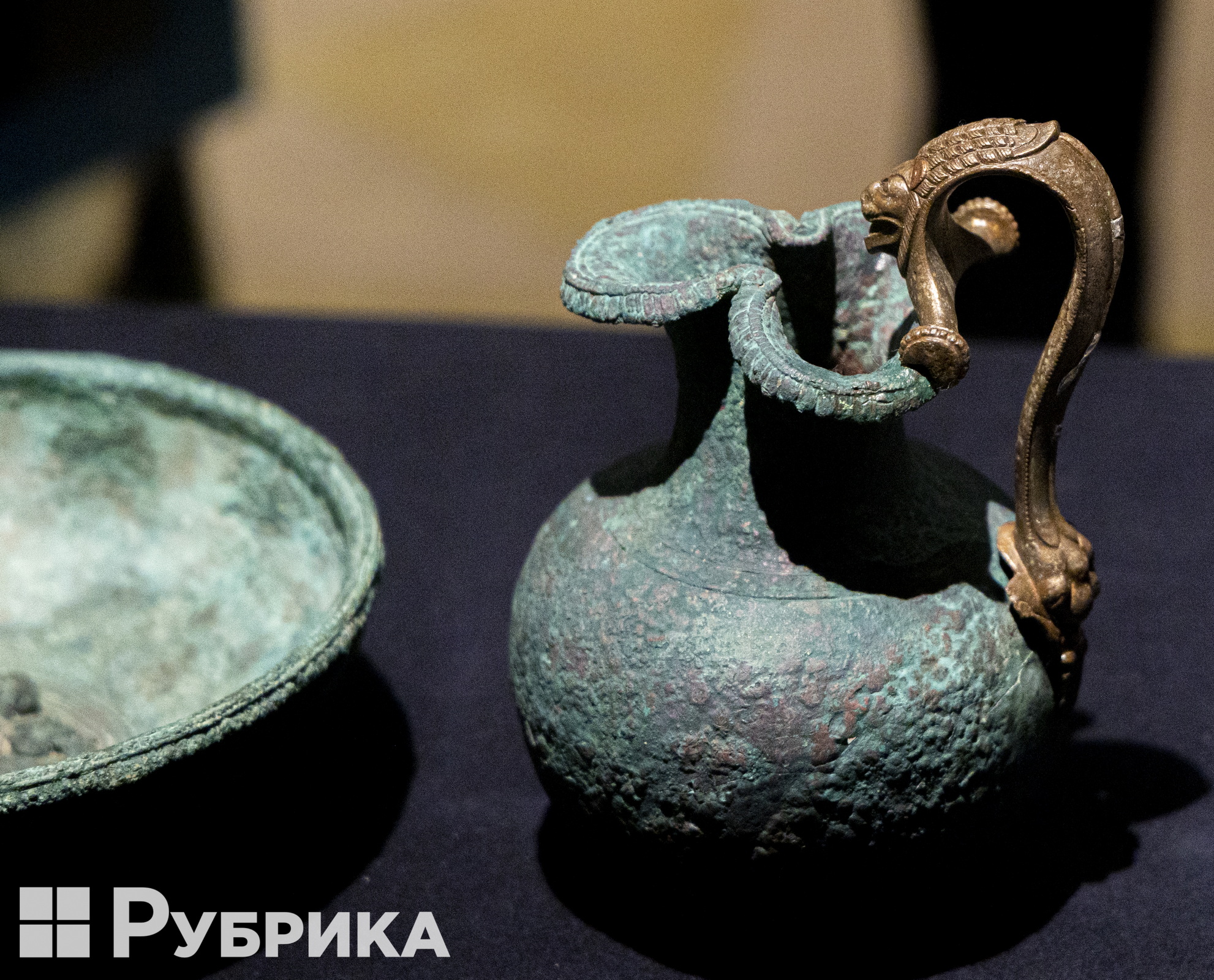
Rostyslav Karandieiev, along with the authorized representative of the museum, opened one of the boxes and showed part of the artifacts. Soon, the entire collection will be fully exhibited.
Photo: Rubryka correspondent Mykola Tymchenko
What we know about the "Scythian gold"
In February 2014, the "Scythian Gold" collection was taken to Amsterdam to participate in the "Crimea: Gold and Secrets of the Black Sea" exhibition held at the Allard Pierson Museum.
Among the 565 exhibition items were artifacts from Scythian gold, ceremonial helmets, precious stones, and weapons of ancient Greeks and Scythians.
After the illegal occupation of Crimea by Russia, which happened after the exhibition's opening, the question arose about to whom the collection, with a total insurance value of $10 million, should return. After the occupation, Russia claimed its rights to part of the collection belonging to Crimean museums. Ukraine, on its part, argued that the exhibits could not be returned to the temporarily occupied territory, which is not under Ukrainian control and should be handed over directly to Ukraine.
In December 2016, the District Administrative Court of Amsterdam recognized Ukraine's rights to the collection and ordered its transfer to Kyiv.
On January 26, 2022, the so-called Russian Crimean museums in temporarily occupied Crimea filed a cassation complaint against the decision of the Amsterdam Court of Appeal about the return of the "Scythian gold" collection to Ukraine.
The "Scythian Gold" must be returned to Ukraine — such a decision was made by the Amsterdam Court of Appeal on October 26, 2021.
In June 2023, after nearly ten years of legal proceedings, the Supreme Court of the Netherlands rejected the cassation appeal of the Crimean museums, confirming the decision of the appeal that satisfied Ukraine's claims.
After that, Ukraine discussed with the Netherlands the free return of the "Scythian gold." Ukraine was supposed to pay the Amsterdam Museum for storing the collection for almost ten years. The museum in the Netherlands canceled the debts for storing the "Scythian gold."


